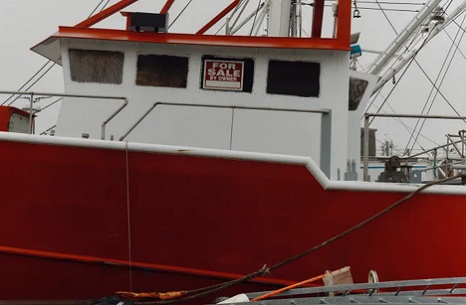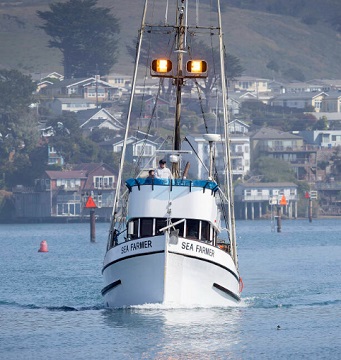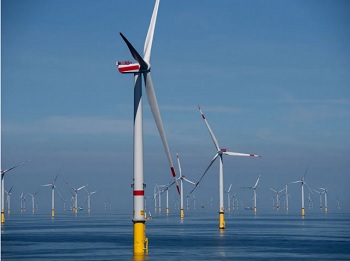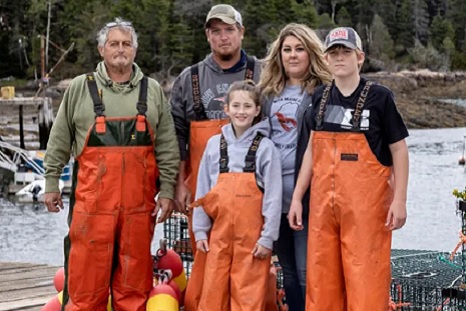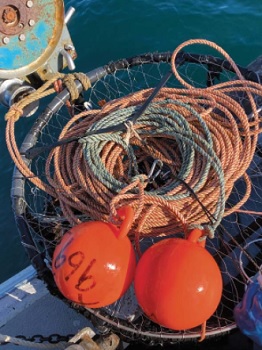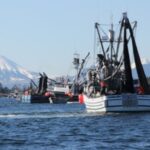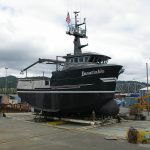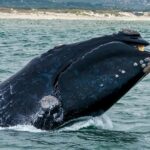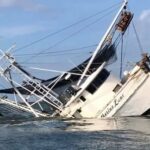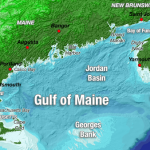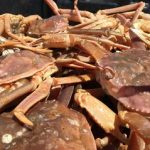Tag Archives: Center for Biological Diversity
A whale washed up dead. Greens blame a Democrat.
 Environmentalists say Chellie Pingree’s defense of the Maine lobster industry could imperil a critically endangered whale. Doing what greens want would likely send the Democrat to political extinction. Conservation advocates are publicly pressuring Pingree to overturn a law that protects Maine’s prized lobster fishery. The calls come after one of only 360 remaining North Atlantic right whales washed up dead in February entangled in Maine lobstering rope. “I think it is a little bit more of a black mark on an otherwise fairly good conservation record,” said Brett Hartl, the government affairs director at the Center for Biological Diversity, on Pingree’s support of the pro-lobstering law. It’s a rare rebuke of a longtime ally who has a near-pristine voting record on environmental issues. Pingree says she has no plans to reverse course, but the incident highlights how lawmakers continue to balance environmental concerns with the everyday lives of their constituents. more, >>CLICK TO READ<< 17:57
Environmentalists say Chellie Pingree’s defense of the Maine lobster industry could imperil a critically endangered whale. Doing what greens want would likely send the Democrat to political extinction. Conservation advocates are publicly pressuring Pingree to overturn a law that protects Maine’s prized lobster fishery. The calls come after one of only 360 remaining North Atlantic right whales washed up dead in February entangled in Maine lobstering rope. “I think it is a little bit more of a black mark on an otherwise fairly good conservation record,” said Brett Hartl, the government affairs director at the Center for Biological Diversity, on Pingree’s support of the pro-lobstering law. It’s a rare rebuke of a longtime ally who has a near-pristine voting record on environmental issues. Pingree says she has no plans to reverse course, but the incident highlights how lawmakers continue to balance environmental concerns with the everyday lives of their constituents. more, >>CLICK TO READ<< 17:57
NOAA postpones controversial bottom trawling experiment in Alaska’s Northern Bering Sea
 The project, called the Northern Bering Sea Effects of Trawling Study, or NETS, has been envisioned as an experiment to examine impacts of commercial bottom trawling in an area of the Bering Sea where it is currently banned. Bottom trawling is a method of fish harvesting that uses nets to sweep the seafloor. While it is prohibited in the Northern Bering Sea, the shift in fish populations caused by climate change may build pressure for bottom trawling there in the future, according to the study plan. The study has been designed as a multiyear project to start as early as this August. It was to be conducted by the Alaska Fisheries Science Center, a branch of the National Oceanic and Atmospheric Administration’s Fisheries Service, also known as the National Marine Fisheries Service. News of the decision came in an emailed letter from Janet Coit, director of NOAA Fisheries, to tribal organizations that had expressed opposition to the project. more, >>click to read<< 09:52
The project, called the Northern Bering Sea Effects of Trawling Study, or NETS, has been envisioned as an experiment to examine impacts of commercial bottom trawling in an area of the Bering Sea where it is currently banned. Bottom trawling is a method of fish harvesting that uses nets to sweep the seafloor. While it is prohibited in the Northern Bering Sea, the shift in fish populations caused by climate change may build pressure for bottom trawling there in the future, according to the study plan. The study has been designed as a multiyear project to start as early as this August. It was to be conducted by the Alaska Fisheries Science Center, a branch of the National Oceanic and Atmospheric Administration’s Fisheries Service, also known as the National Marine Fisheries Service. News of the decision came in an emailed letter from Janet Coit, director of NOAA Fisheries, to tribal organizations that had expressed opposition to the project. more, >>click to read<< 09:52
Alaska tribes, green group take aim at planned bottom-trawling study in northern Bering Sea
 Three tribal governments and an environmental organization on Thursday served notice to federal agencies that they are planning a lawsuit to block a fishing experiment along the seafloor in the northern Bering Sea. The practice of bottom trawling, sweeping a net to catch fish on or near the seabed, is currently prohibited in the Northern Bering Sea, which is abbreviated in legal documents as NBS. But the National Oceanic and Atmospheric Administration’s National Marine Fisheries Service is planning to deploy some commercial trawling gear in selected spots over the coming summers to see what impacts, if any, result to the habitat and the marine life dependent on it. The research project is called the Northern Bering Sea Effects of Trawling Study, or NBET. It is focused on specific areas north and south of St. Lawrence Island and would potentially simulate effects of commercial harvests. more, >>click to read<< 08:10
Three tribal governments and an environmental organization on Thursday served notice to federal agencies that they are planning a lawsuit to block a fishing experiment along the seafloor in the northern Bering Sea. The practice of bottom trawling, sweeping a net to catch fish on or near the seabed, is currently prohibited in the Northern Bering Sea, which is abbreviated in legal documents as NBS. But the National Oceanic and Atmospheric Administration’s National Marine Fisheries Service is planning to deploy some commercial trawling gear in selected spots over the coming summers to see what impacts, if any, result to the habitat and the marine life dependent on it. The research project is called the Northern Bering Sea Effects of Trawling Study, or NBET. It is focused on specific areas north and south of St. Lawrence Island and would potentially simulate effects of commercial harvests. more, >>click to read<< 08:10
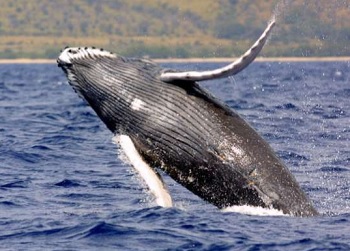
Federal fisheries service agrees to deal aimed at curbing whale entanglements in fishing gear
A legal agreement finalized Tuesday over the protection of humpback whales is expected to help the threatened animals thrive while maintaining the ocean’s health. The deal stricken between the National Marine Fisheries Service and Center for Biological Diversity will create a team to reduce the number of whales that get tangled in a West Coast federal fishery. The service will form the team by Oct. 31, 2025, a press release stated. A federal court in March sided with the center after it filed suit last year against the fisheries service. The center argued the service failed to protect Pacific humpback whales from getting entangled in sablefish pot gear off the California, Oregon and Washington coasts. >click to read< 09:33
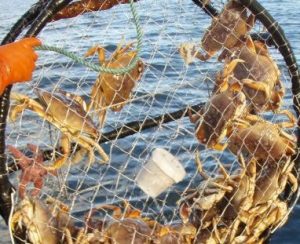
For Whales and Crabbers, Finding Balance Is Getting Harder
In Dick Ogg’s 25 years of commercial fishing, he’s had a few close encounters with whales—mostly while pulling Dungeness crab pots off the ocean floor. “I’ve had whales right next to me,” within about five meters, says Ogg. “They follow me, they watch, they’re curious. And then they go on about their business.” Ogg is fortunate his interactions have been so leisurely. For nearly a decade, California’s whales and crabbers have been locked in a persistent struggle. From 1985 to 2014, the National Oceanic and Atmospheric Administration (NOAA) reported an average of 10 whales were entangled in fishing gear each year along the west coast of the United States. >click to read< 07:53
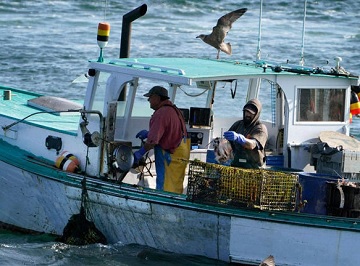
Green groups targeting blue-collar lobstermen are largely funded by dark money
Environmental groups that have led litigation targeting the lobster fishing industry have been heavily funded by various liberal dark money groups that don’t disclose their individual donors, a Fox News Digital review of tax filings found. For example, the Center For Biological Diversity has received millions of dollars from left-wing dark money groups including the Rockefeller Family Fund, the Patagonia Fund and Pew Charitable Trusts. The center has been the recipient of grants worth nearly $8 million from the Sandler Foundation, $1 million from the Wilburforce Foundation, $850,000 from Environment Now and another $815,000 from the Frankel Family Foundation, according to Influence Watch. Video, >click to read< 07:42

Green Groups Ignore Genuine Risks To Whales From Offshore Wind Farms
Environmentalists want to crack down on the Maine lobster industry in the name of protecting endangered whales, but they turn a blind eye to the greater threat to whales from proposed offshore wind farms. The irony is almost as delicious as the lobster dinners at stake. Green groups such as the Center for Biological Diversity and Defenders of Wildlife routinely target commercial fishing by claiming that it causes ancillary harm to marine species protected under the Endangered Species Act and other federal laws. This includes the North Atlantic right whale, whose population of only 350 or so migrates up and down the Atlantic Coast and can cross prime lobster territory off New England. >click to read< 11:52

Maine lobster group backs new speed limit on ships to protect whales
A proposal to expand speed limits along the East Coast might have little impact on vessels off Maine and is not directly linked to two lawsuits over pending federal regulations for the state’s lobster fishery. Still, the groups involved in that litigation recently weighed in on the speeding proposal, which is part of broader efforts to save right whales from extinction. The Maine Lobstermen’s Association and four conservation groups supported the stricter limits but took issue with other aspects of the rules and reiterated the priorities that have driven their court battles. >click to read< 09:31

Whale injuries from drift gillnets off California spark lawsuit against U.S.
Environmentalists on Thursday sued the agency overseeing U.S. fisheries, claiming it had failed to protect endangered humpback whales from entanglement in drift gillnets used in commercial fishing off California. The lawsuit accuses the National Marine Fisheries Service of violating the Endangered Species Act by allowing drift gillnets without safeguards and failing to take into account the harm posed to whales already at risk of extinction. >click to read<, – The Center for Biological Diversity sued NOAA Fisheries today to force it to protect endangered Pacific humpback whales from entanglements in California drift gillnets. In the past two fishing seasons an estimated 12 Pacific humpbacks were caught in the California drift gillnet fishery, according to federal reports. >click to read< 10:35

Commissioner’s Update – Good News? Cautiously Optimistic
The Center for Biological Diversity, in their case against the National Marine Fisheries Service, has done an about face. In their first filing, they had asked Judge Boasberg to implement new rules to achieve the required risk reduction within 6 months, but their filing last Friday asked the Judge to implement a two-year process to develop and implement those rules. They also asked the Judge to vacate the current Biological Opinion so that it can be rewritten while the new rules are being developed. Why they changed their position is not known, but DMR, NMFS, MLA, MLU and Mass Lobstermen all asked for a similar process that was two years or longer. In any event, this development is good news, but the Judge must agree before this is final. I am cautiously optimistic that he will agree that time is needed, given the complexity and difficulty of what we are facing. We expect a decision on this case in November. >click to read the rest< 14:01

Lobstermen may get temporary delay on new right whale restrictions
The lobster industry, National Oceanic and Atmospheric Administration, and the Center for Biological Diversity are involved in federal court negotiations over imposing new and tougher restrictions on fishing. The CBD brought a suit against the federal agency, arguing the rules imposed earlier this year don’t do enough to protect the endangered whales, as required by federal law. The National Marine Fisheries Service, which is part of NOAA, said it needed two years, while the CBD suggested just six months,,, >click to read< 08:57

Lobster harvesters worry about survival of their livelihoods
The state’s lobster industry is bracing as federal regulators consider additional requirements they claim are needed to protect the endangered North American right whale, proposals many fear could spell doom for the industry and the coastal communities that it supports. Squaring off in this battle are national environmental and animal rights organizations versus Maine and its lobster harvesters. The legal war began in January 2018 when the Center for Biological Diversity, the Defenders of Wildlife, the Humane Society of the United States, and the Conservation Law Foundation filed a lawsuit in the U.S. District Court of D.C. against the U.S. Department of Commerce and the NOAA. The environmental and animal rights groups claimed the federal agencies had not done enough to protect the North Atlantic right whale from lobster harvesting. >click to read< 12:42
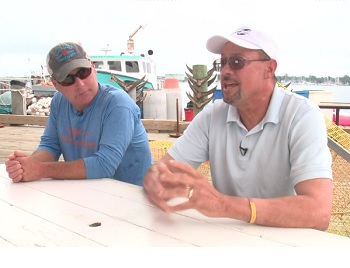
Maine lobstermen say ‘red listing’ a threat to their livelihoods without cause
“I truly believe the lobstermen have done everything we’ve been asked by National Marine Fisheries and the DMR,” said Gerry Cushman, who has been lobstering in Port Clyde for 38 years. “We’re not the bad guys here,” he said. “You ask us to do it, we do it. So why are you putting us on the red list? “ The Seafood Watch listing is recommending consumers not buy American lobster from either the U.S. or Canada. Maine is the primary producer of that lobster for the U.S. Cushman said he believes Seafood Watch has taken the action against Maine fishermen to pressure them to stop fighting proposed regulations in court. Steve Train, a lobsterman from Long Island in Casco Bay, echoed those points, saying Maine fishermen have followed all the whale protection rules, even though they have also been challenging them in court. Video, >click to read< 19:37

Fishery interests urge judge to rule in lobster lawsuit
Parties in a lobster industry lawsuit filed against federal regulators are urging a judge to make a decision in the case because its outcome affects a parallel case that the parties have to act on. The federal judge considering this decision was the same who ruled last month that new regulations to protect endangered right whales do not go far enough and violate both the Endangered Species Act and Marine Mammal Protection Act. In that case, U.S. District Judge James Boasberg asked the parties to propose remedies. The lobster association’s case takes aim at newly enacted and proposed federal regulations to protect the whales, which the association says are invalid because they are based on flawed assumptions and calculations. The parties need to know the court’s opinion so they can develop proposed remedies that Boasberg ordered in the parallel lawsuit brought by conservation groups. >click to read< 17:01
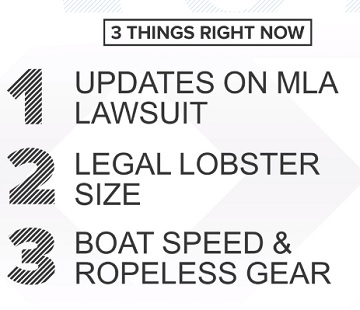
Annual fisheries meeting tackles lobster lawsuits, whale protections
Tuesday in Washington D.C., key players from Maine’s lobster fishery tackled what it considers its most pressing issues. The first issue was an update regarding Judge James Boasberg’s July ruling in the U.S. District Court case involving the Center for Biological Diversity versus Secretary Raimondo and the Maine Lobstermen’s Association. This case made the news in early July after Boasberg ruled regulators aren’t doing enough to protect the right whale. Just days after, he sided with environmental groups in another lawsuit to allow Area 1 to close again to fishermen this coming fall and winter. Another issue was a proposal to shrink the size limit for lobsters over the course of five years in order to replenish the declining population of young lobsters. Also, reduced boat speeds and the future of ropeless lobster traps. >click to read< 20:15

Statement from Maine Lobstermen’s Association on Court Ruling
Below is a statement from the Maine Lobstermen’s Association following today’s decision in a lawsuit filed by the Center for Biological Diversity. The Maine Lobstermen’s Association (MLA) will not allow this industry to go down without a fight. Today’s ruling from the U.S. District Court for District of Columbia is a mixed bag but clearly demonstrates why it’s more important than ever for MLA to have the financial resources to continue this battle. >click to continue< 21:01
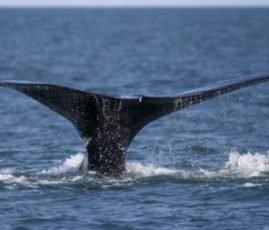
Federal court rules fisheries officials didn’t do enough to protect right whales from lobster gear
A federal court on Friday ruled in favor of environmental groups that had filed a lawsuit against the government and the Maine Lobstermen’s Association claiming federal fisheries officials had failed to protect endangered North Atlantic right whales from potentially fatal entanglements in lobster fishing gear, records show. A judge ruled that NOAA Fisheries had violated the Marine Mammal Protection Act and Endangered Species Act when it issued a May 2021 biological opinion and a September 2021 final rule because officials had not done enough to reduce the lobster fishery’s threat to right whales, the plaintiffs in the suit said in a statement. >click to read< 18:00
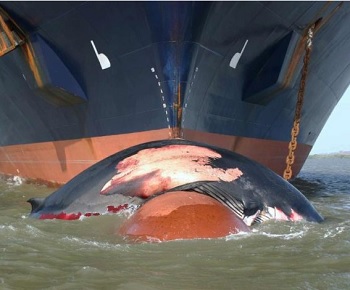
New restrictions on ships to protect whales coming
The National Oceanic and Atmospheric Administration has been reviewing the speed regulations it uses to protect North Atlantic right whales, and according to spokesperson Allison Ferreira, the agency will publish new proposed rules within the coming weeks. A public comment process would follow. More than 50 of the whales were struck by ships between spring 1999 and spring 2018, NOAA records indicate. >click to read< 09:36

New Right Whale Endangered Species Condom Distributed for World Ocean Day
The Center for Biological Diversity will head to Capitol Hill on Wednesday, June 8 to distribute endangered species condoms in honor of World Ocean Day and mark the 50th anniversary of the Marine Mammal Protection Act. Center staff will hand out newly designed right whale condom packages with the slogan “Cover your spout… don’t let the right whale die out.” The new right whale design is part of the Center’s Endangered Species Condoms campaign, which draws attention to how human population growth is affecting critically endangered species. >click to read< 10:55

California: Closure of commercial fishery causes seafood price increase
Two humpback whales became entangled in Dungeness crab gear near the Monterey Peninsula within the last two weeks, leading to the closure of the commercial Dungeness crab fishery,,, “It’s pretty devastating because the best crabbing here is generally in the springtime,” said Morro Bay commercial fisherman, Bill Blue. This suspension isn’t helping, especially during their most profitable season. “It’s a pretty unjust thing. It’s all political. It has nothing to do with saving the whales. The shipping industry kills a lot of whales. Video, >click to read< 10:26

Maine lobster industry fights lawsuit that aims to shut down fishery
While Maine’s lobster industry has been fighting an offensive legal battle against impending rules to protect endangered North Atlantic right whales, it also is playing defense in a case brought by environmentalists that seeks to shut down the lobster fishery entirely. Lobster industry groups are intervening in a case brought in Washington, D.C.’s U.S. District Court by the Center for Biological Diversity and other plaintiffs that argues the new federal restrictions aren’t adequate, and that the fishery’s continued operation poses an existential threat to the whales. >click to read< 19:15

Gulf of Maine: Lawsuits over North Atlantic right whale regulations coming to boil
Lobsterman Brian Cates lives so far at the edge of Maine he can look out the windows of his house and see Canadian boats out in Canadian waters. Cates and other New England lobstermen are worried about how the coming regulations issued by the National Marine Fisheries Service will affect their livelihoods. Cates fishes in disputed waters. There, around the mouth of the Bay of Fundy, there’s a strip of ocean claimed by both Canada and U.S. alike called the grey zone. Cates fishes up against Canadian lobstermen, their traps and lines often getting caught up on one another. And the rules coming down from the federal government are not helping, >click to read< 19:14
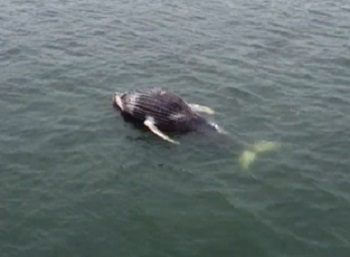
COVID-19 saves right whales by sinking cruise ships
Canada created the Shediac ship restricted zone in April 2020 just a couple weeks before Holland America’s Zaandam was scheduled to sail through that zone on a shipping lane used only seasonally by cruise ships as a shortcut to Quebec City. However, a COVID-19 no-sail order in March 2020 superseded that restriction. Consequently, there was not one Canadian ship right whale strike death in two years and only one Canadian crab entanglement death,,, Zero whales were killed by lobster gear. There has not been one death from lobster gear in the U.S. and only a couple in Canada in over 20 years but the Center for Biological Diversity, with no supporting data, claims the whales are going extinct based on lobster entanglements. >click to read< By Jim O’Connell 07:31

North Atlantic Right Whale: Extinction Is Looming. Everyone’s Fighting.
This May, new rules created for the lobster industry by the National Marine Fisheries Service will become official policy for boats operating in right whale territory. The agency estimates that lobster and Jonah crab traps are responsible for 95 percent of vertical end-line ropes in the areas where whale protections apply and therefore pose the most risk for entangling whales. The Fisheries Service says these changes will reduce the risk of death and serious injury by 69 percent. But in the months after the rules were finalized, the agency has seen pushback from conservation groups, who argue the new protections aren’t enough, and lobster fishing crews, who say the rules will harm their business. >click to read< 14:22

Lawsuit filed to Protect Pacific Humpback from fishing gear, Can lawsuits save North Atlantic Right Whale?
The Center for Biological Diversity sued the National Marine Fisheries Service today for failing to protect endangered Pacific humpback whales from deadly entanglements in sablefish pot gear off the coasts of California, Oregon and Washington. According to Fisheries Service estimates, the sablefish fishery on average kills or seriously injures about two humpback whales every year. The fishery uses 2-mile-long strings of 30 to 50 pots. >click to read< Can Litigation Help Save the North Atlantic Right Whale From Extinction? – As conservation organizations and governments around the globe grapple with the devastating effects of climate change and overexploitation, the legal battle fought over the critically endangered North Atlantic right whale, one of the world’s most endangered large whale species, may provide insights into how litigation can help, or hinder, efforts to save species from extinction. >click to read< 13:41






